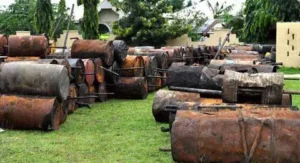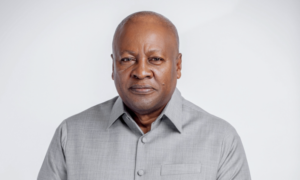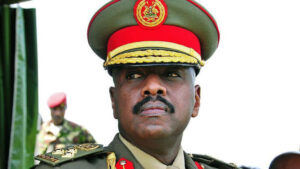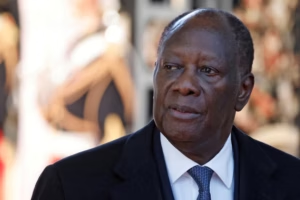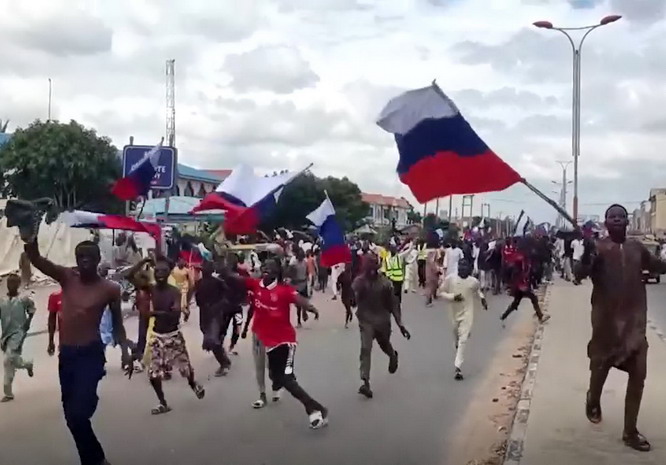
The #EndBadGovernance protest in Nigeria, spanning from August 1 to August 10, took an unexpected turn as some demonstrators in Kano and Kaduna states, located in the northwest of the country, were observed waving and distributing Russian flags. In response, Nigerian President Bola Tinubu convened a meeting with national security chiefs, and the police conducted several arrests. The Russian embassy in Abuja has refuted any involvement in Nigeria’s domestic issues. There is growing concern due to the poorly monitored 1,497km border Nigeria shares with the Niger Republic, which is currently under the control of a pro-Russian military junta.
Olayinka Ajala, an expert in international relations with over a decade of research in the region, was consulted by The Conversation Africa for insights into the implications for Nigeria.
The presence of Russian flags among some protesters could be attributed to possible infiltration by Nigeriens expressing their discontent with the Nigerian government’s stance towards Niger’s military junta and seeking to embarrass the administration. President Bola Tinubu, who also serves as the chairman of the Economic Community of West African States (ECOWAS), had imposed sanctions on Niger following the military coup in 2023. This notion of foreign interference supports the previously expressed view that the withdrawal of Niger, Mali, and Burkina Faso from ECOWAS could lead to a migration of citizens to other countries in the region, jeopardizing their stability.
Despite the challenges in policing Nigeria’s borders, more effective measures could have been implemented to prevent such infiltration, especially considering the ample notice provided by the protest organizers.
The Wagner Group’s presence in Niger presents risks to Nigeria, as seven Nigerian states border the Republic of Niger. Historically, there has been free movement between Niger and northern Nigeria for work and family matters, but this mobility is accompanied by security challenges. The text ends abruptly, indicating a discussion on the violent non-state actors and the potential threats they pose.
